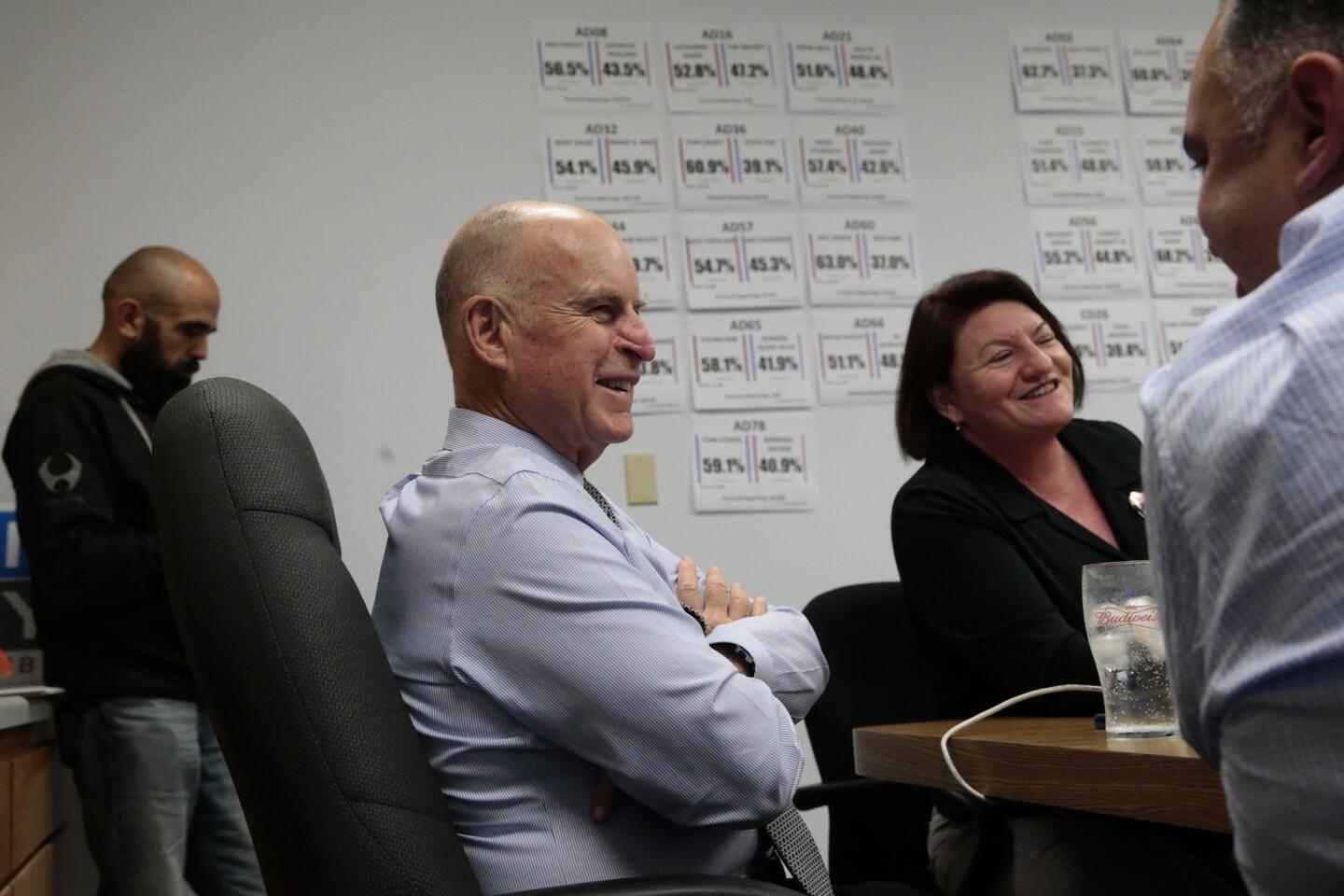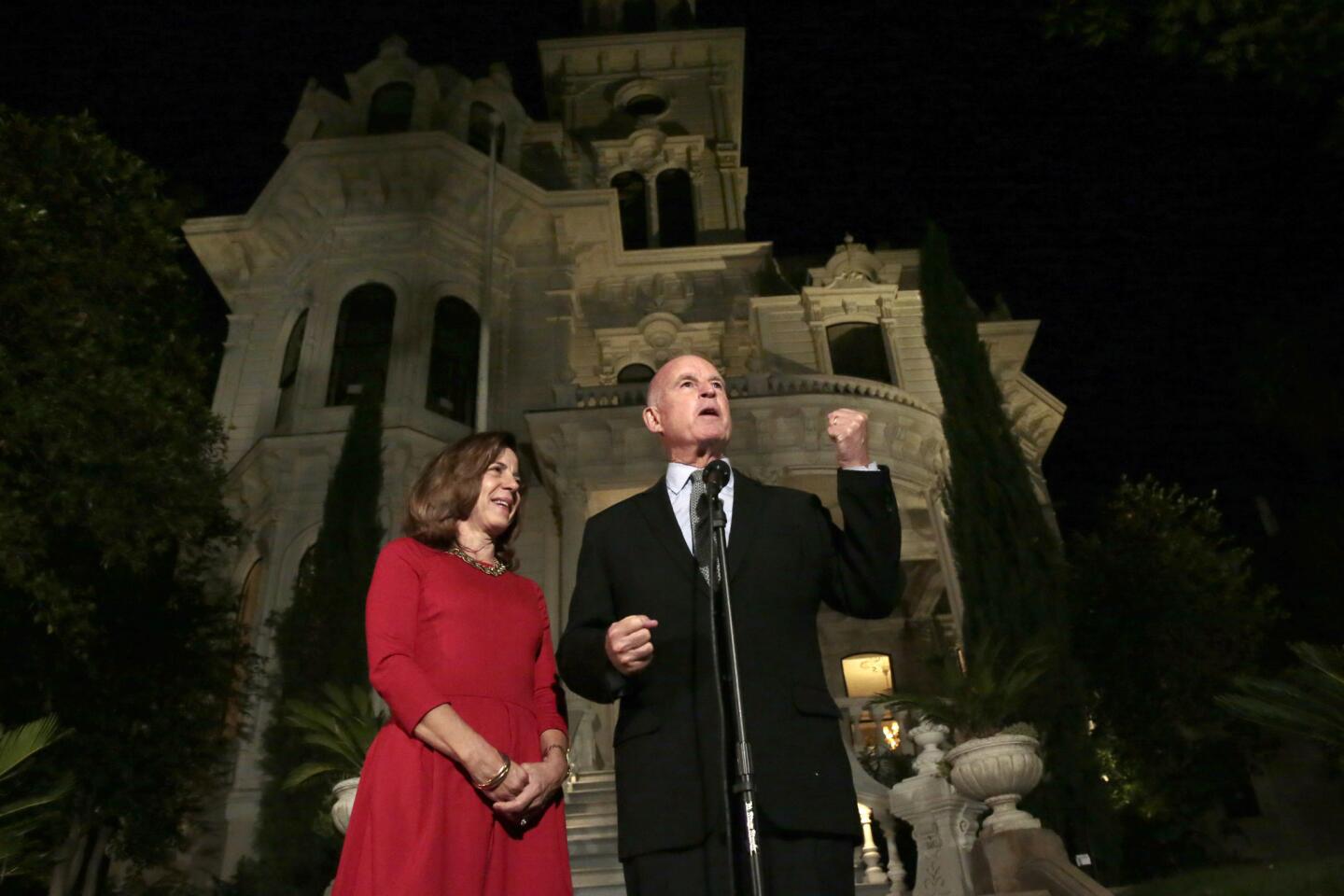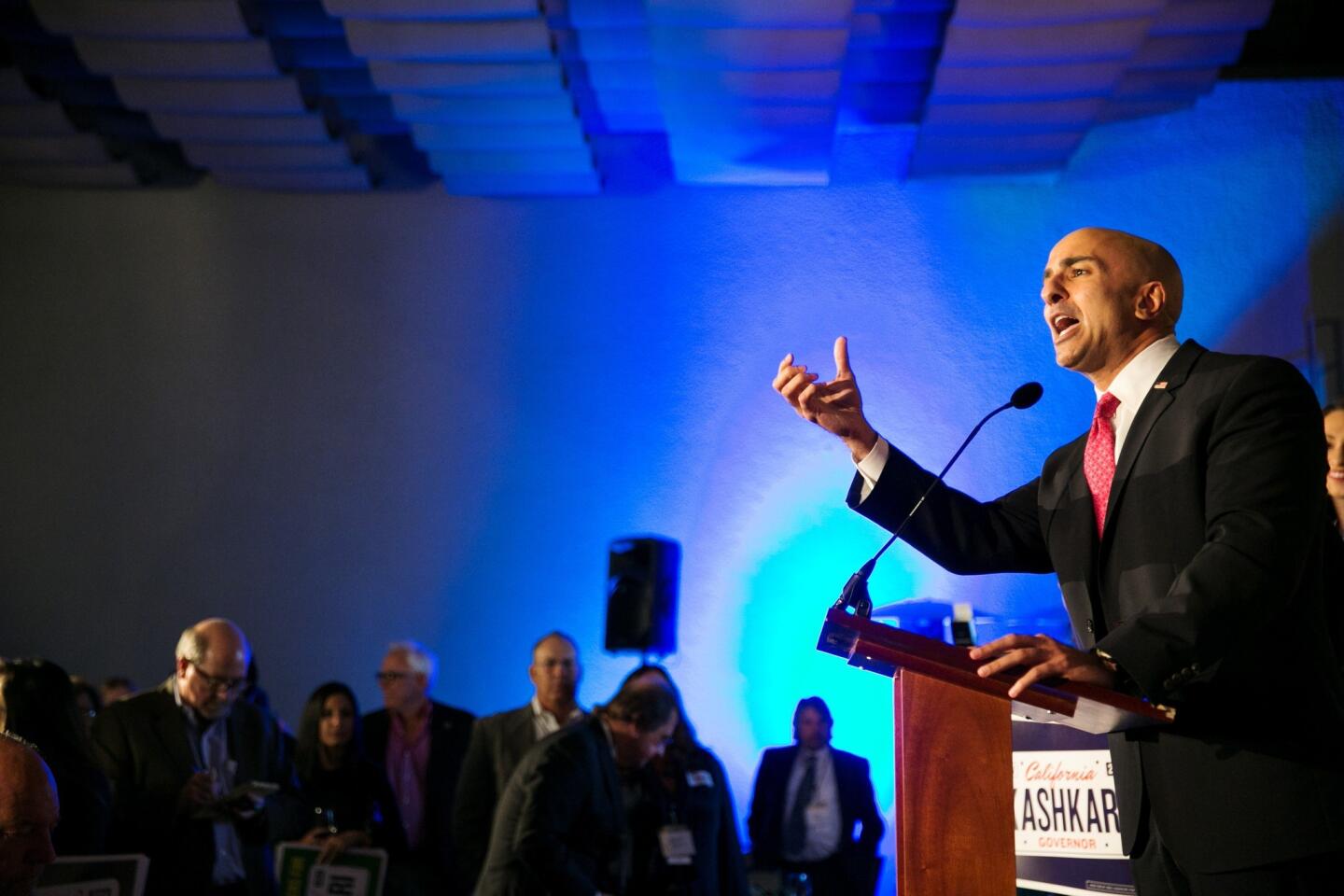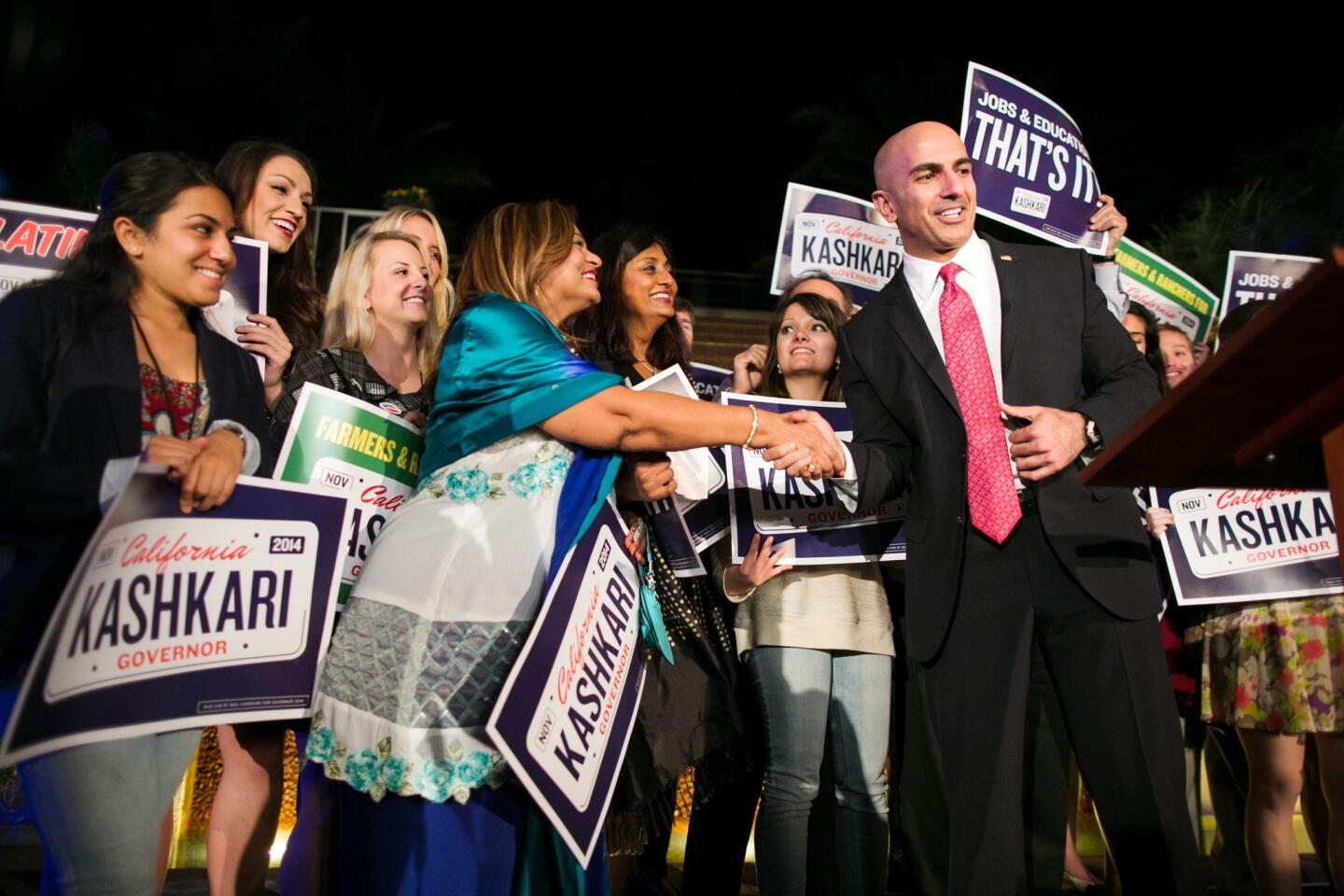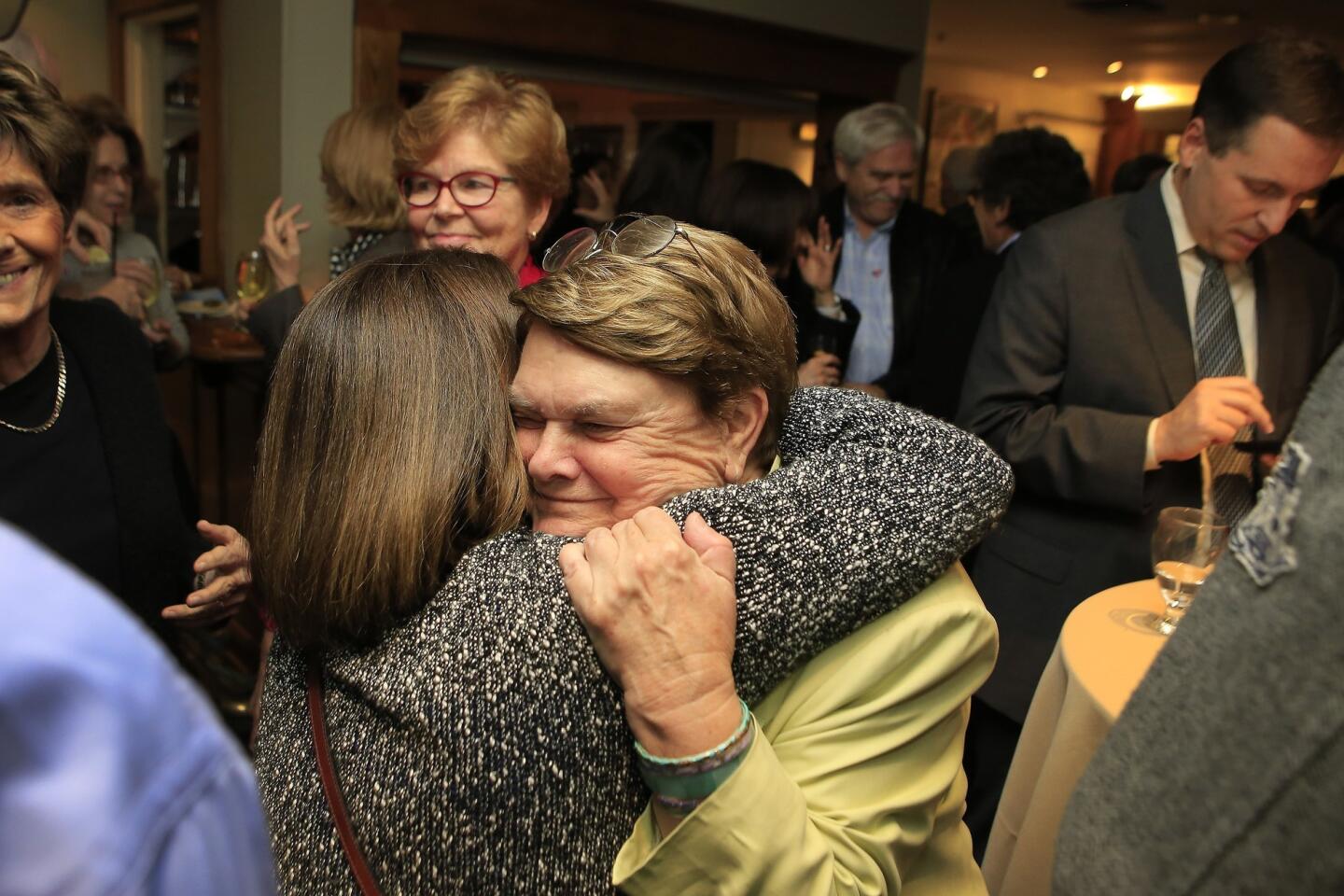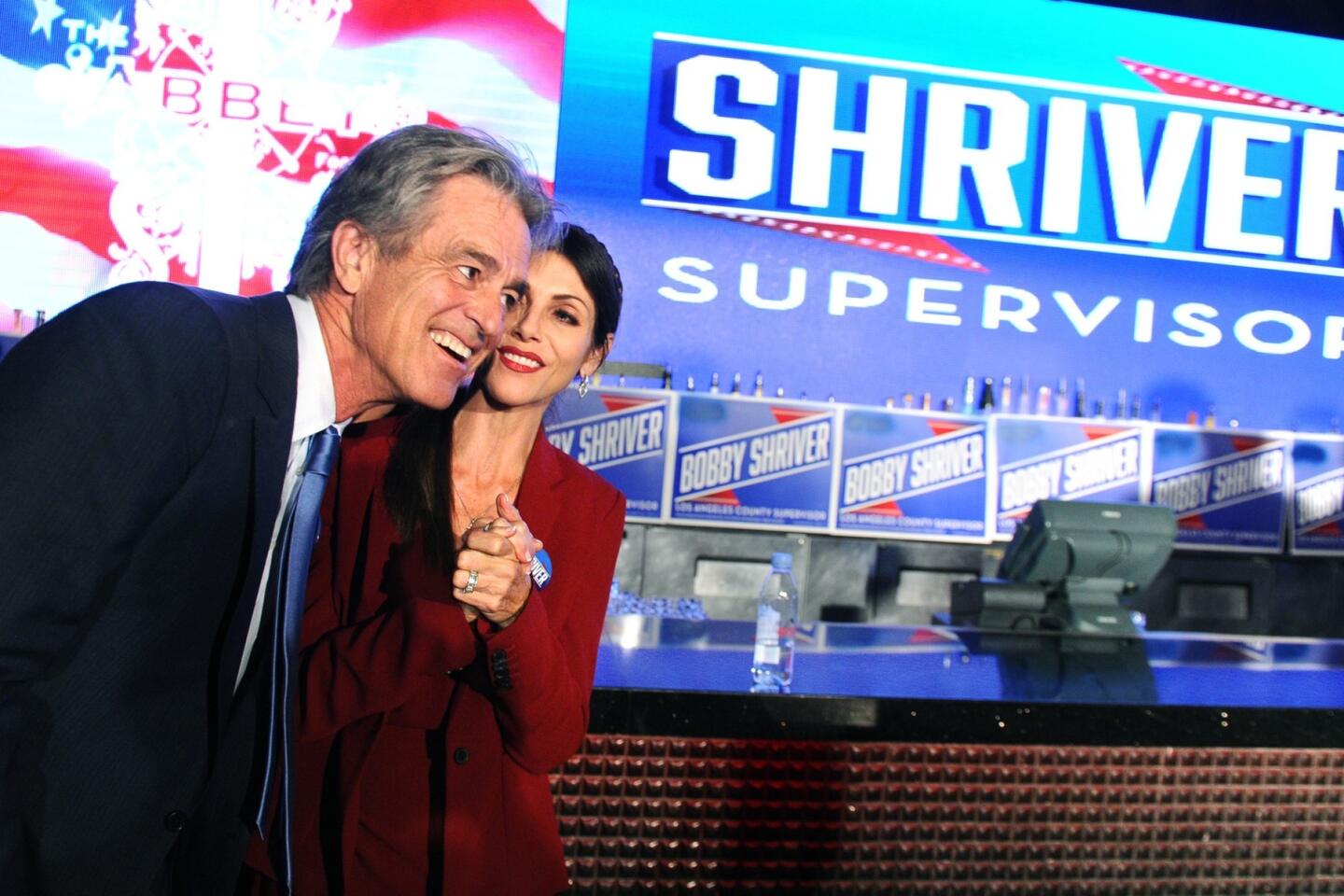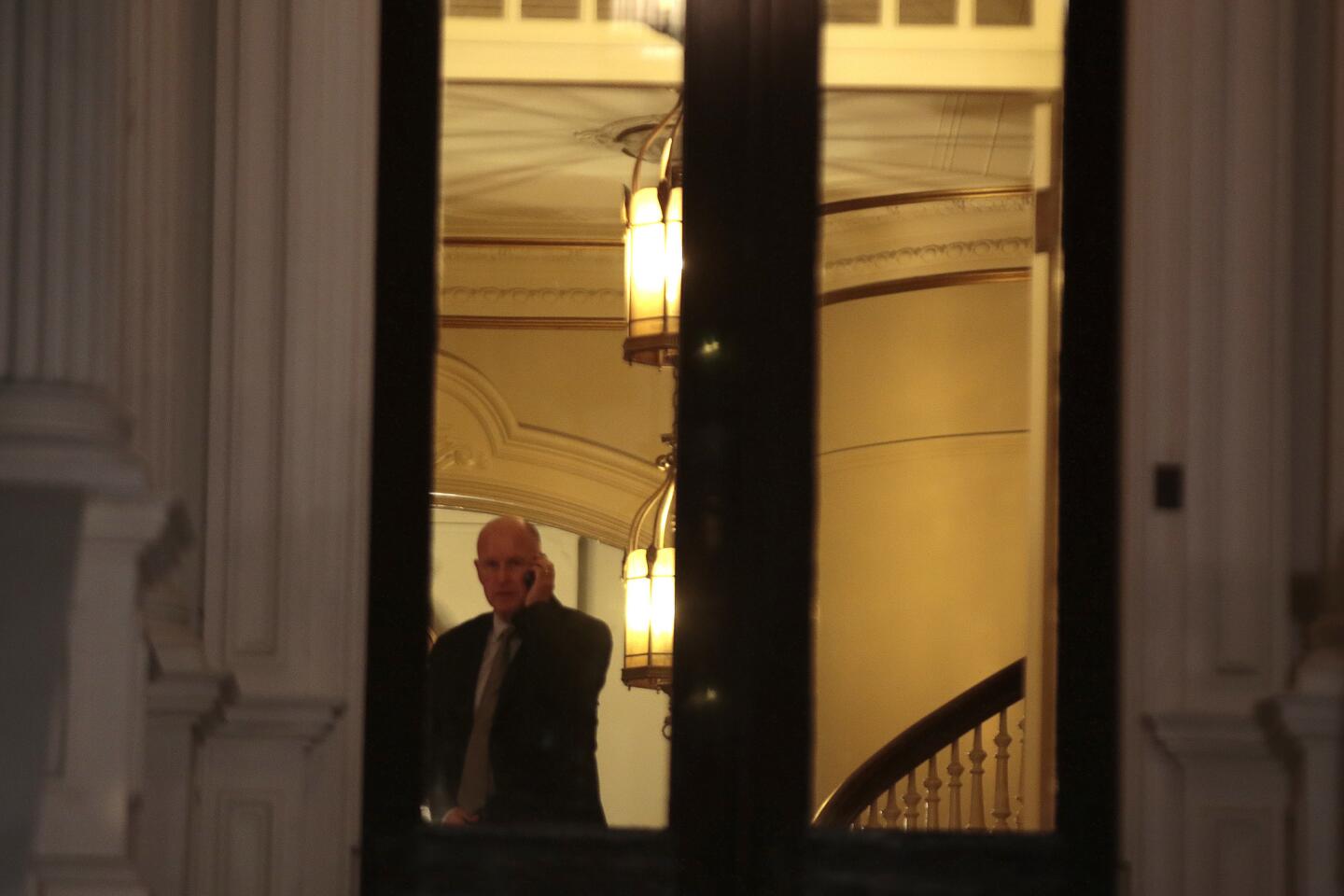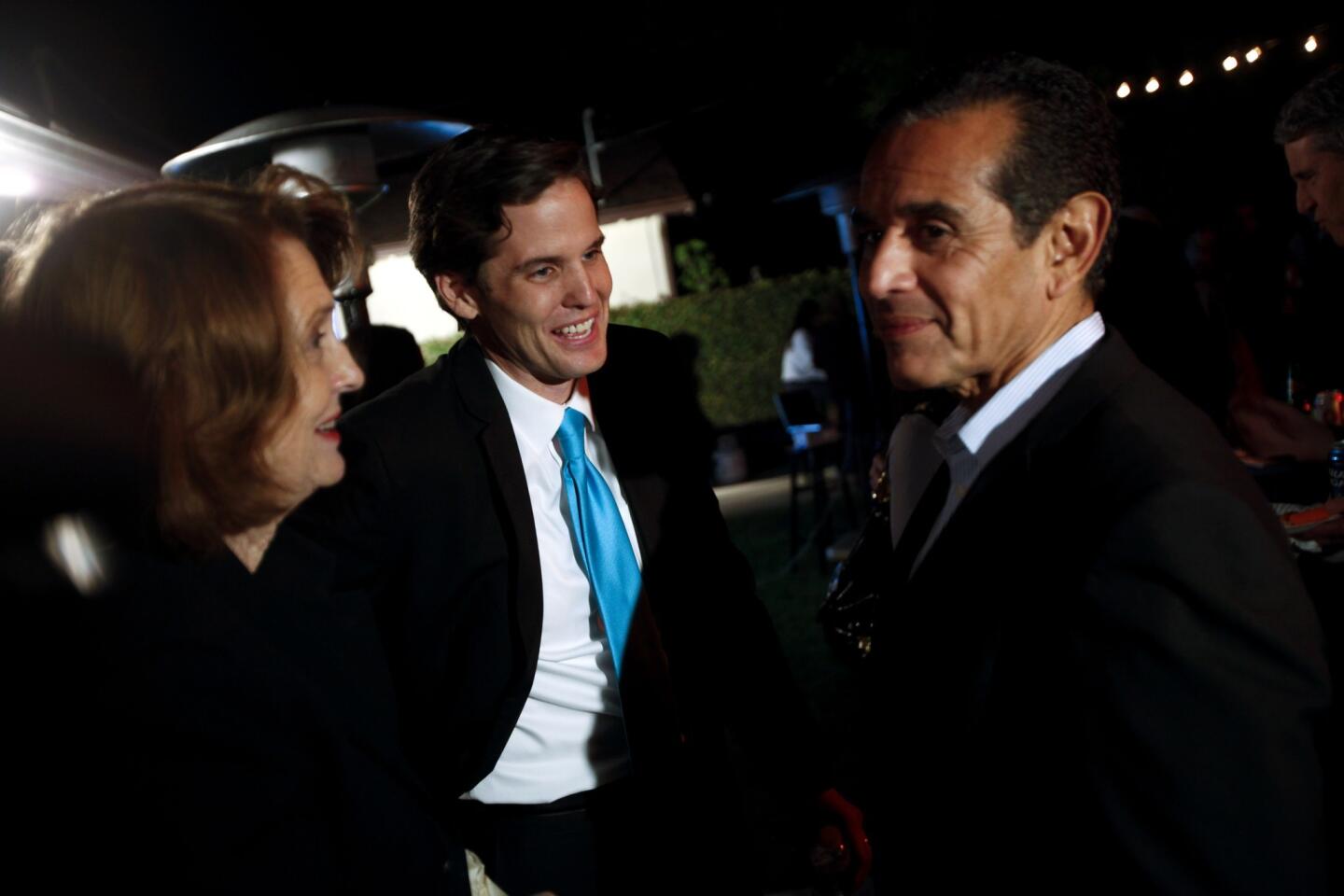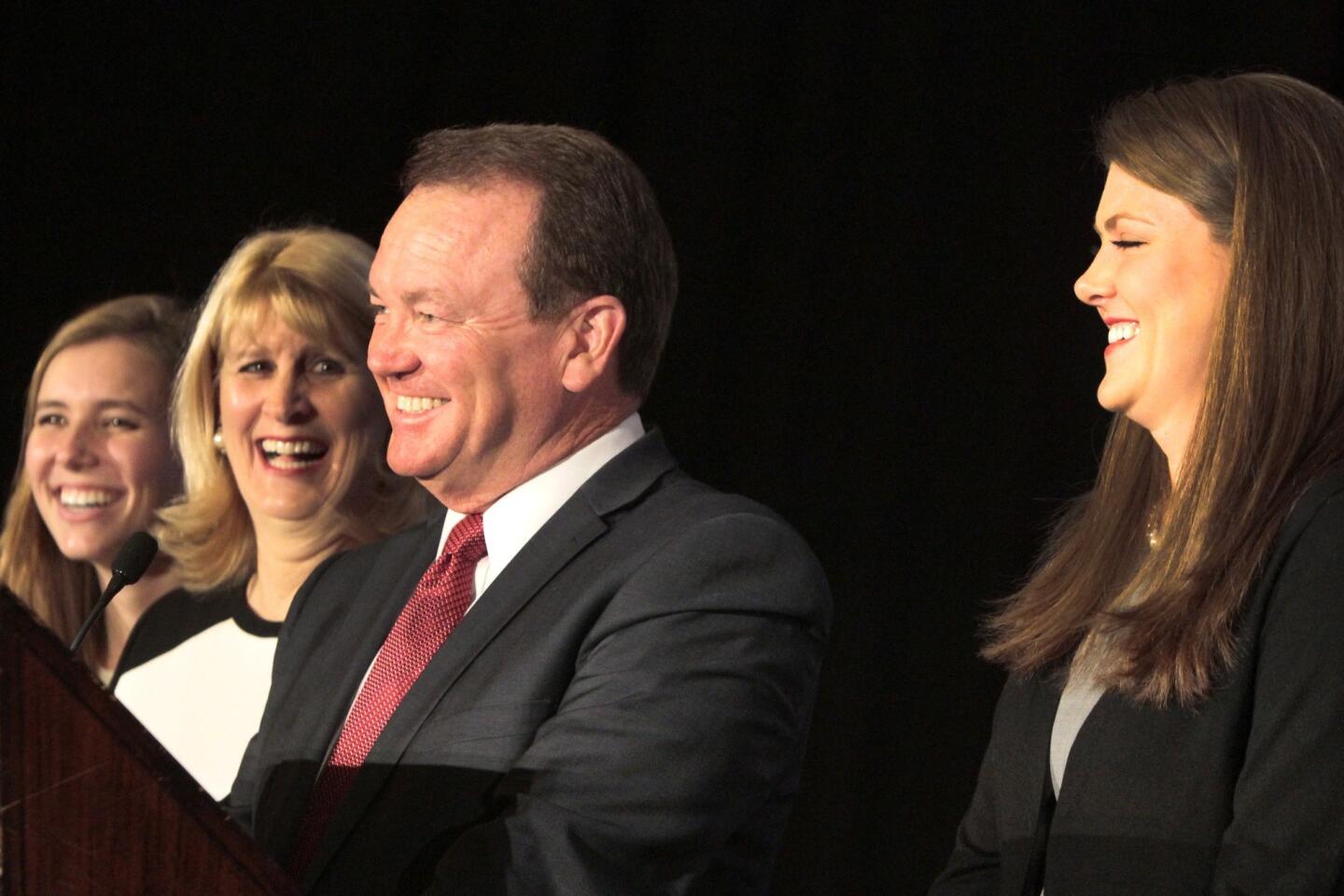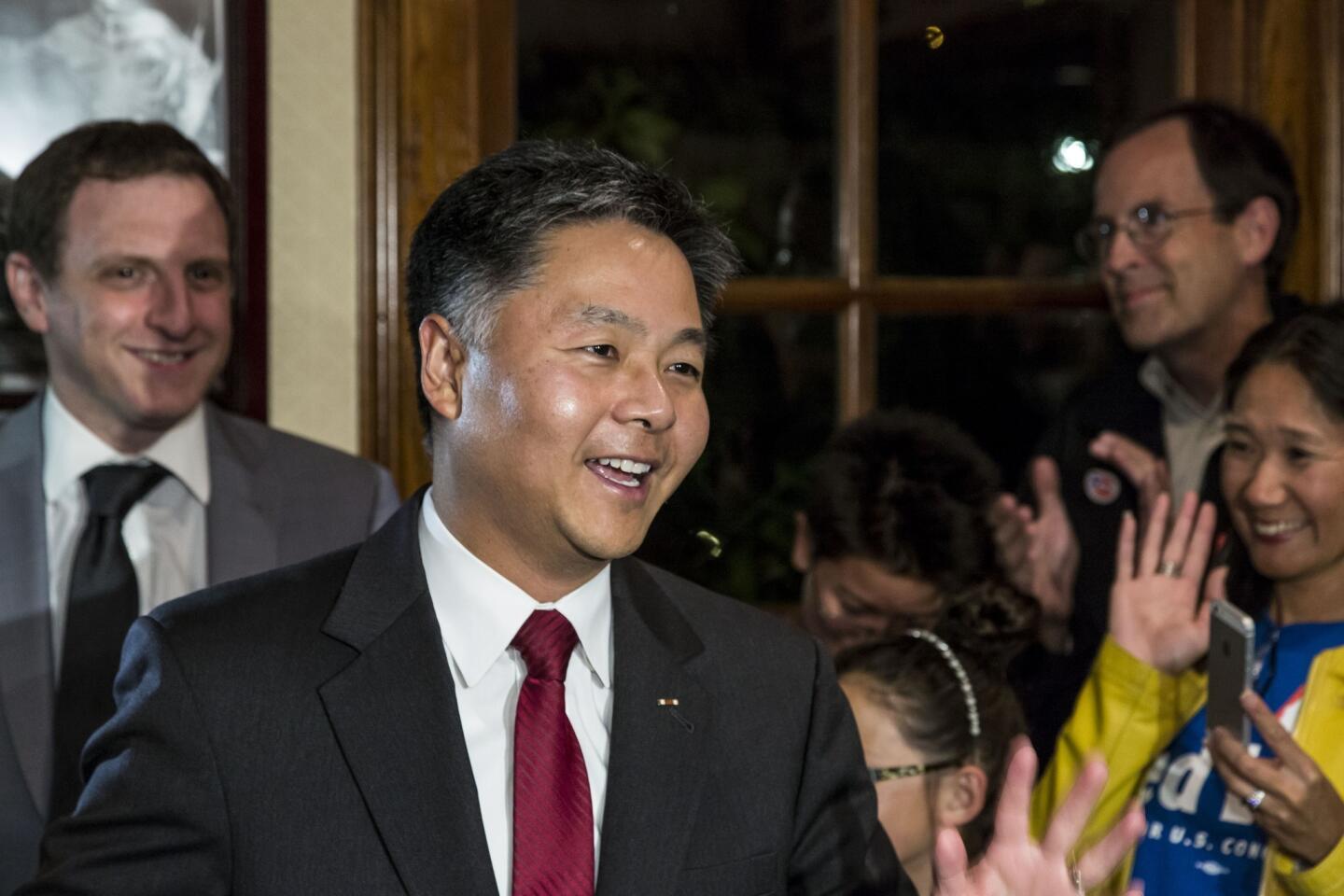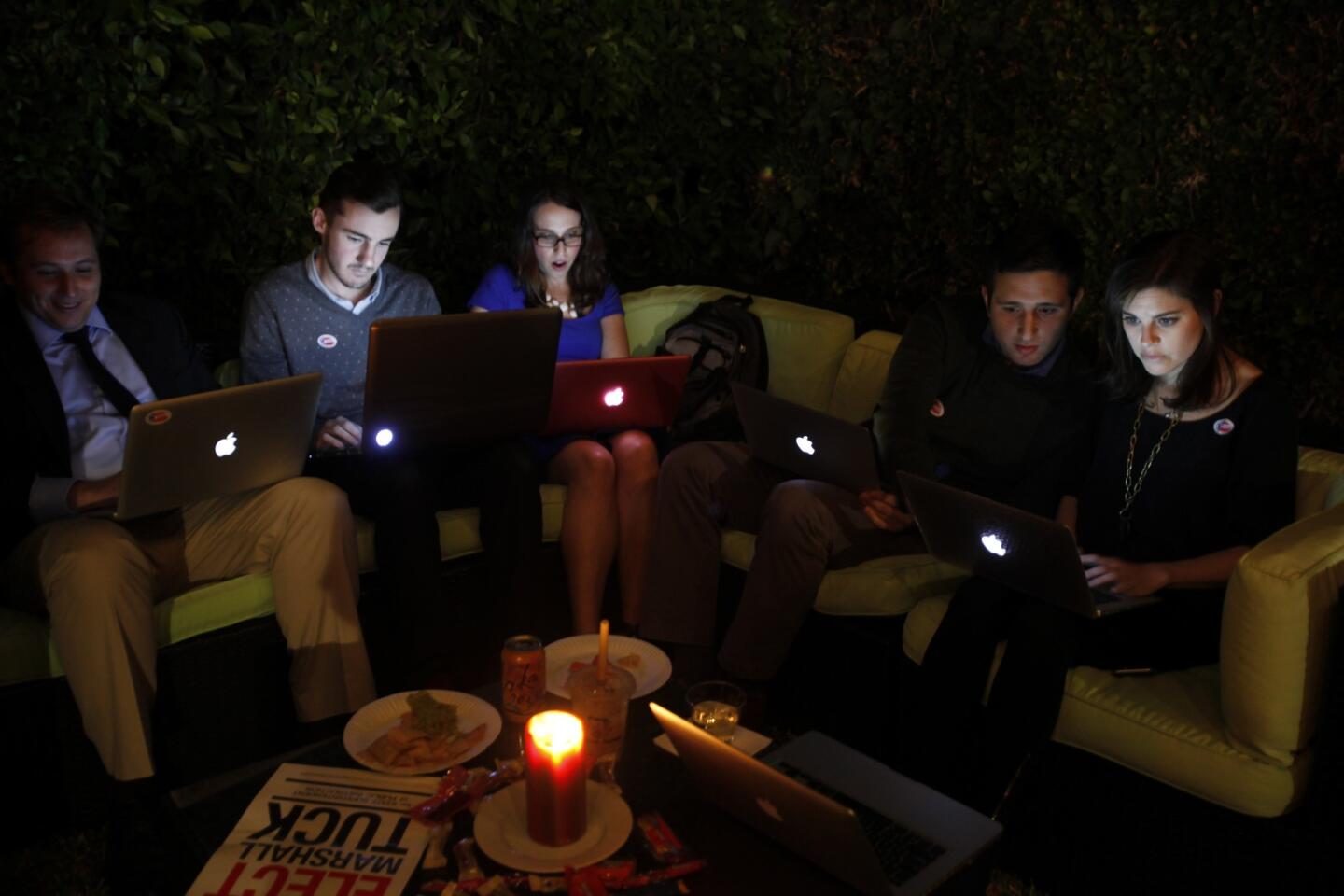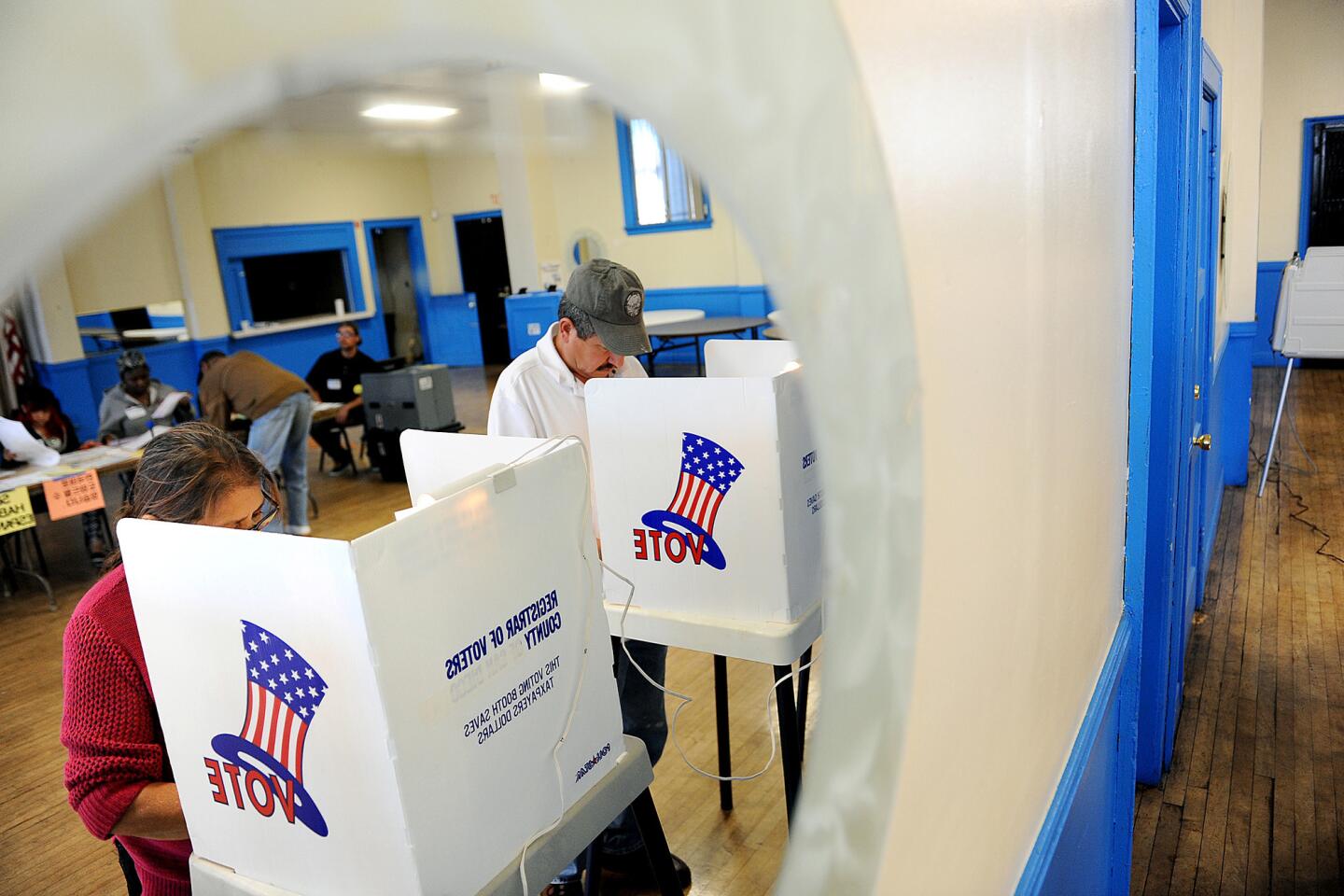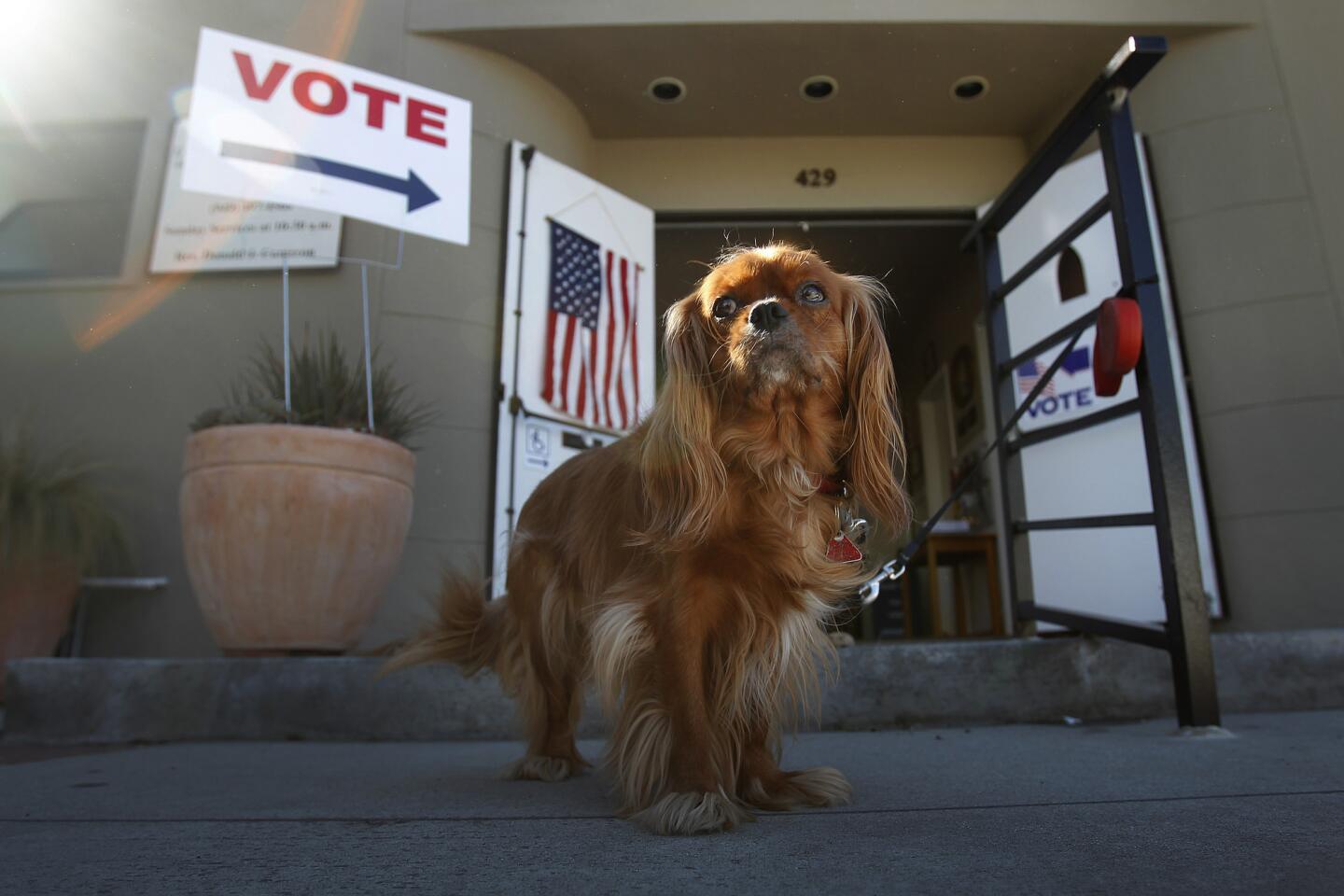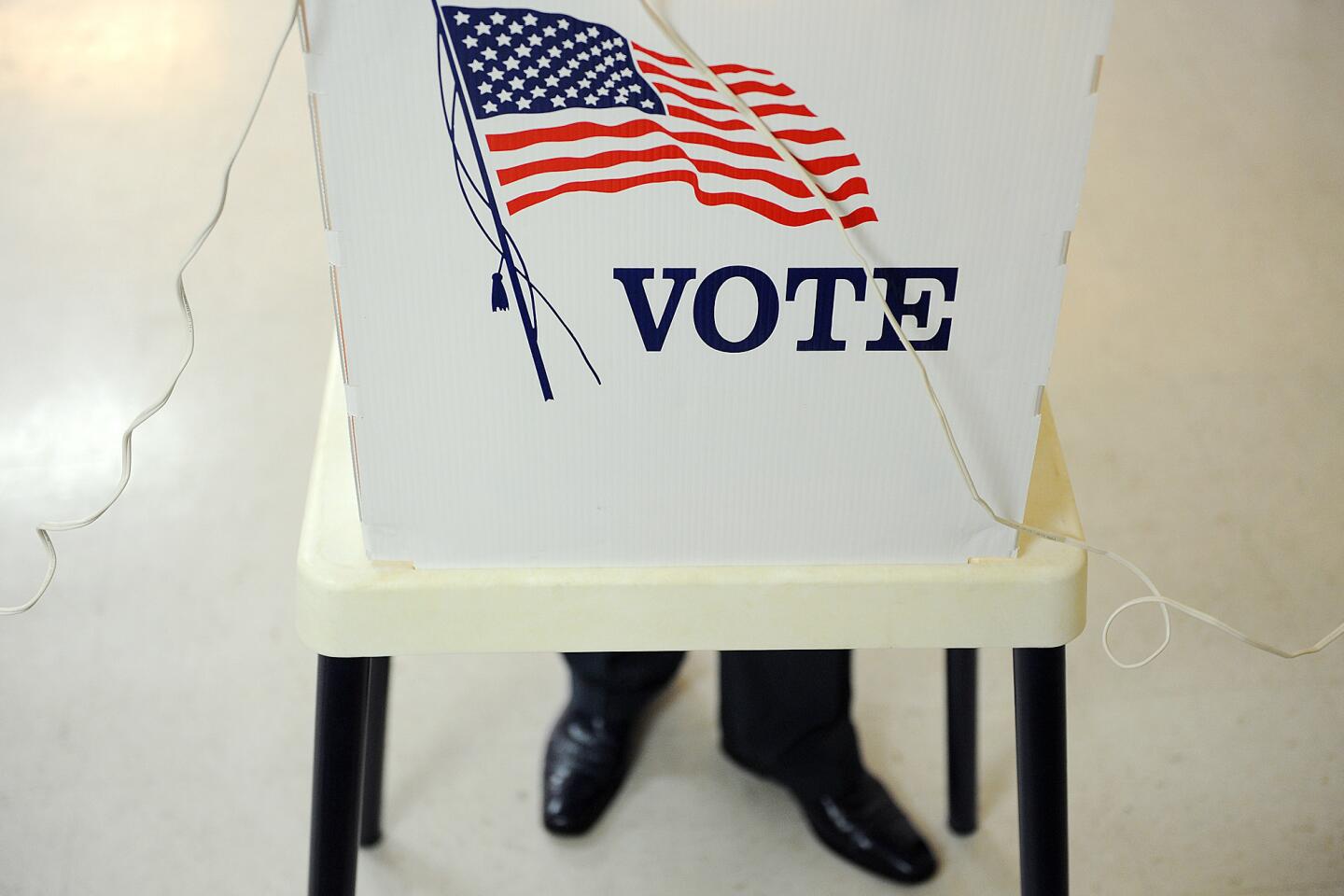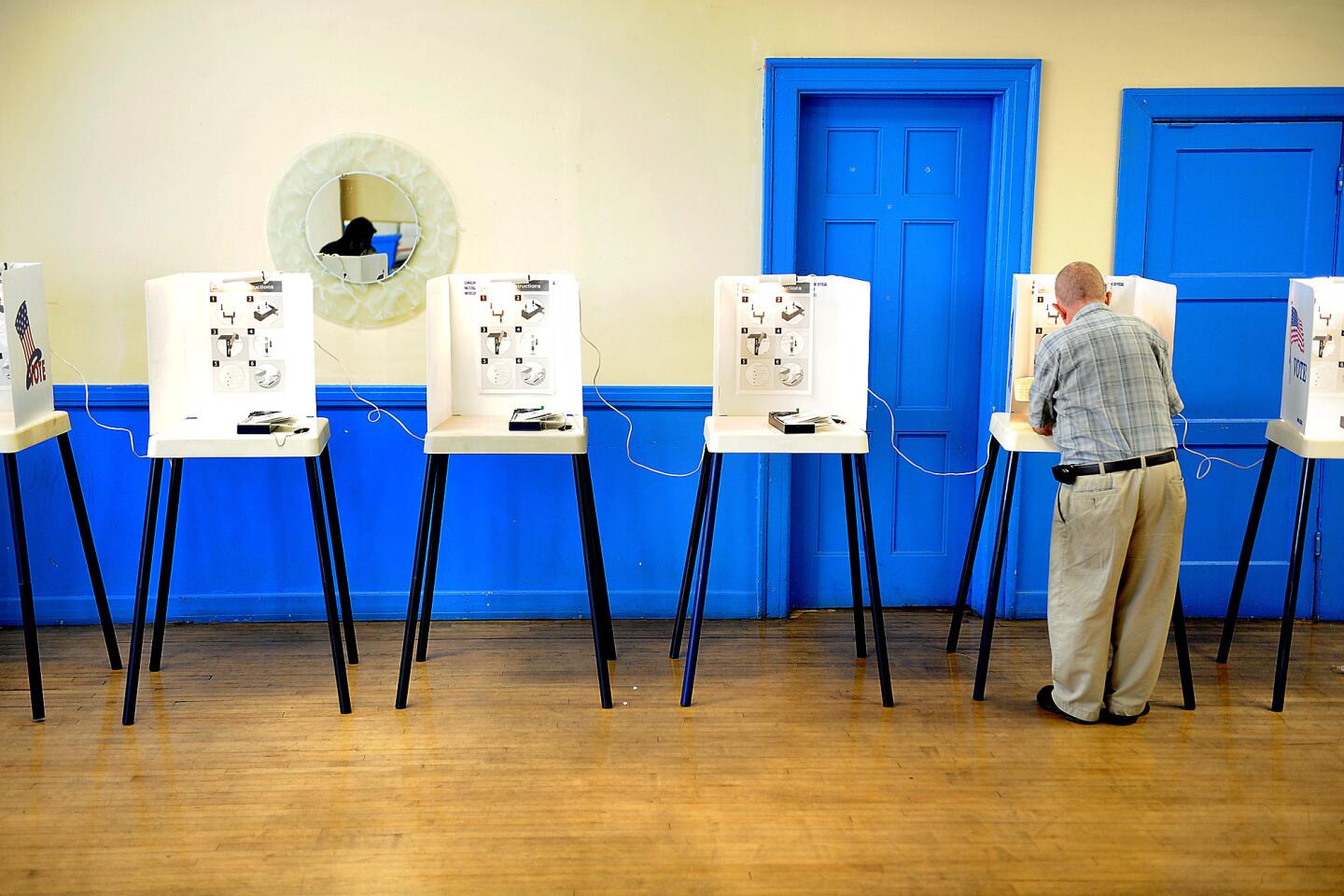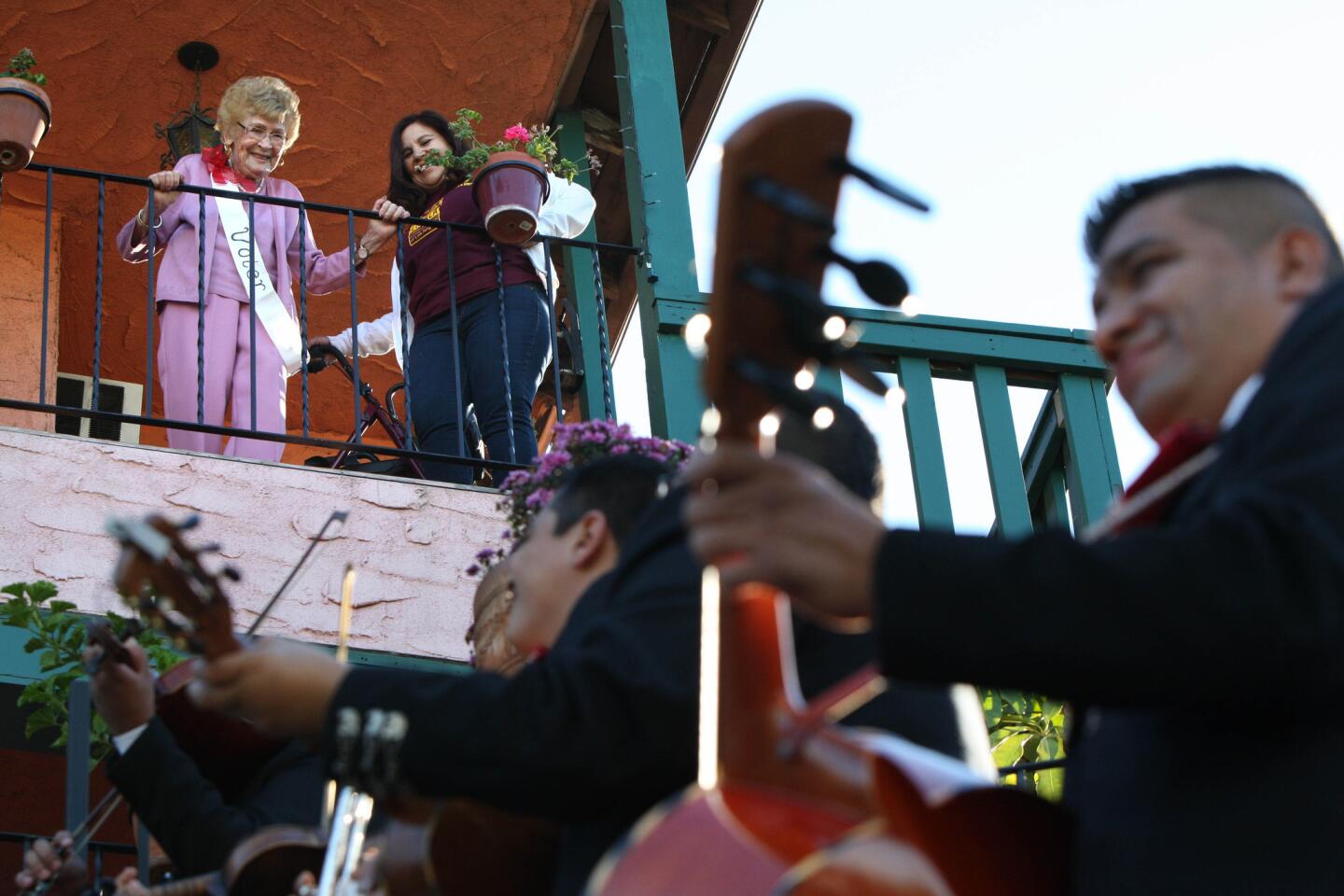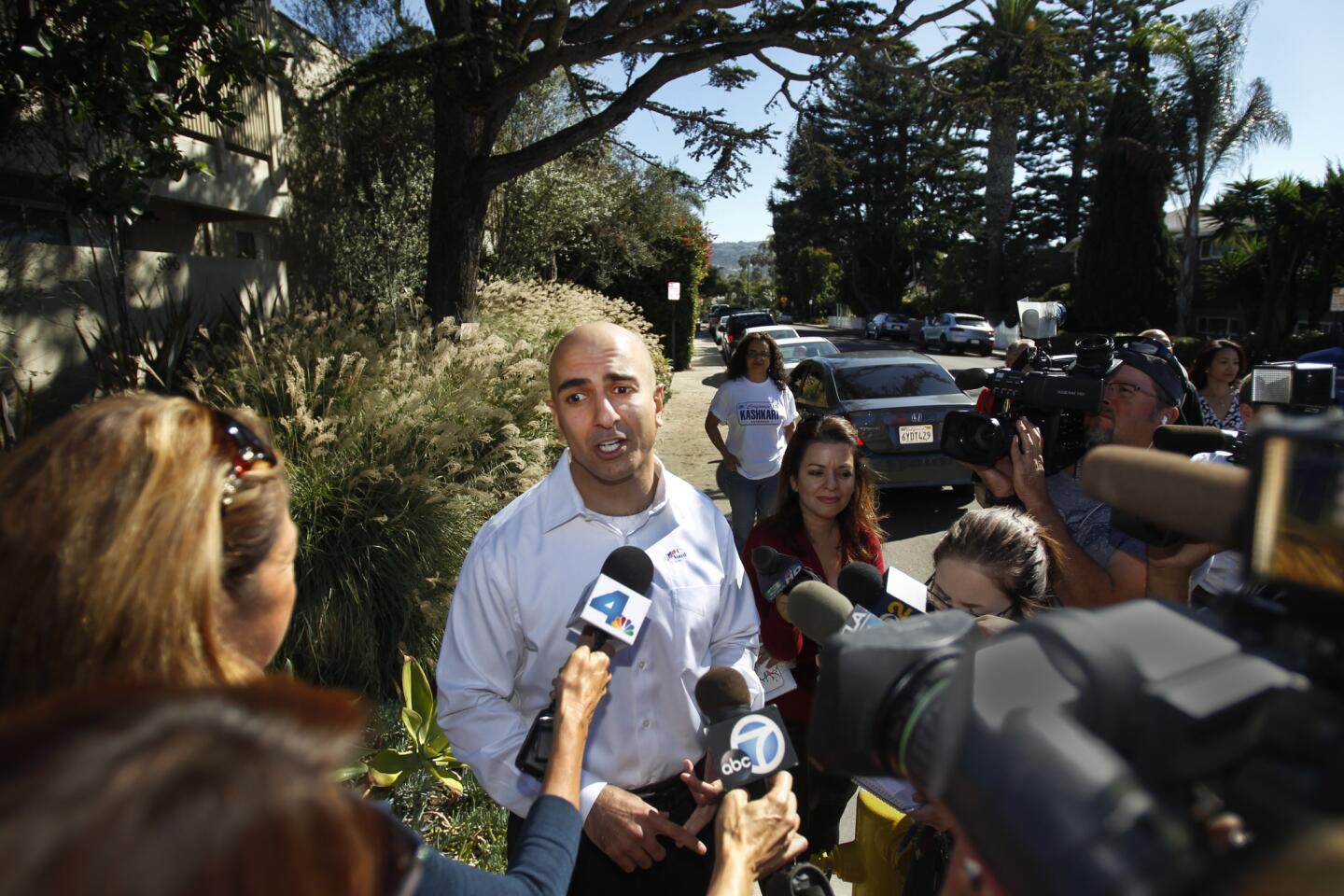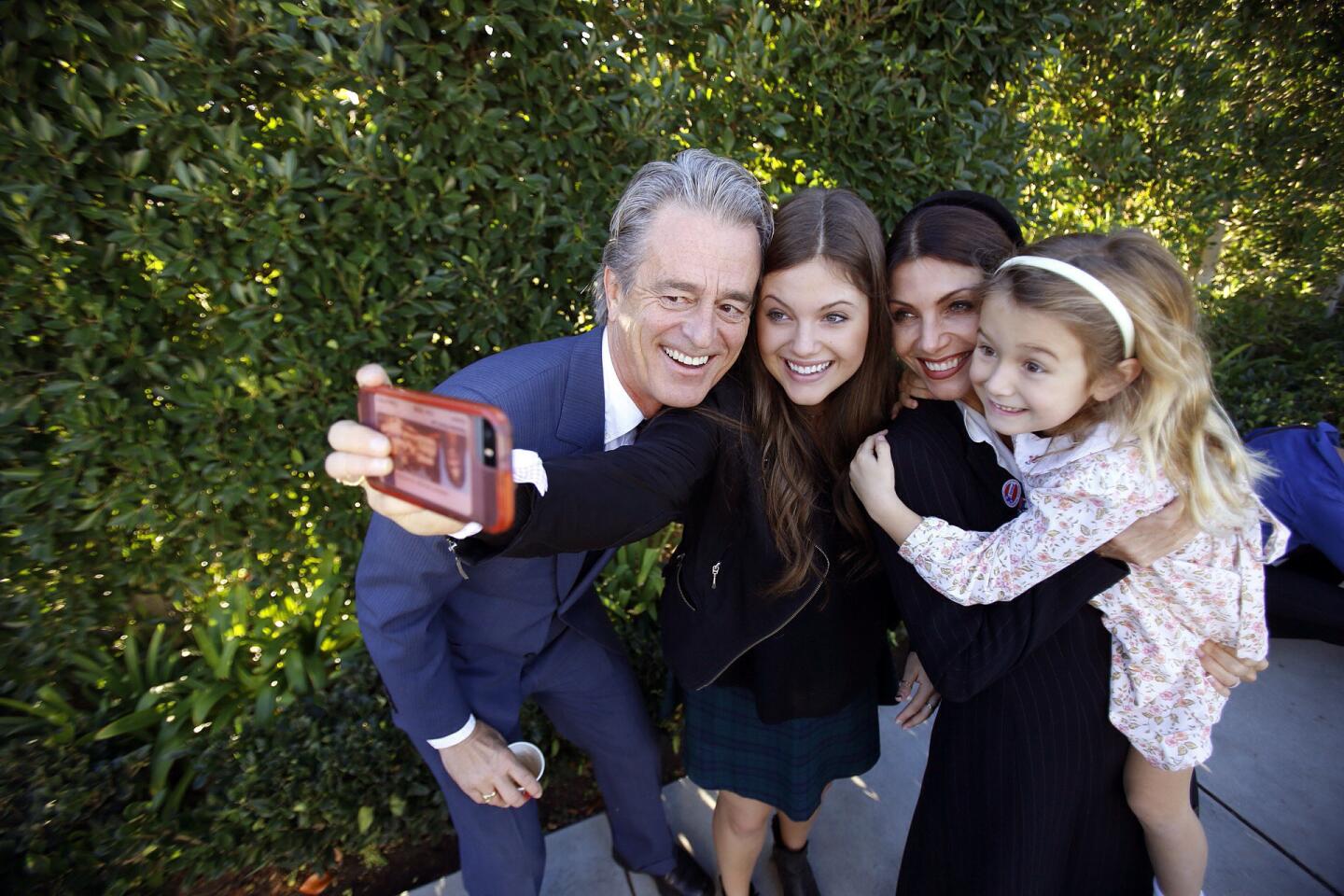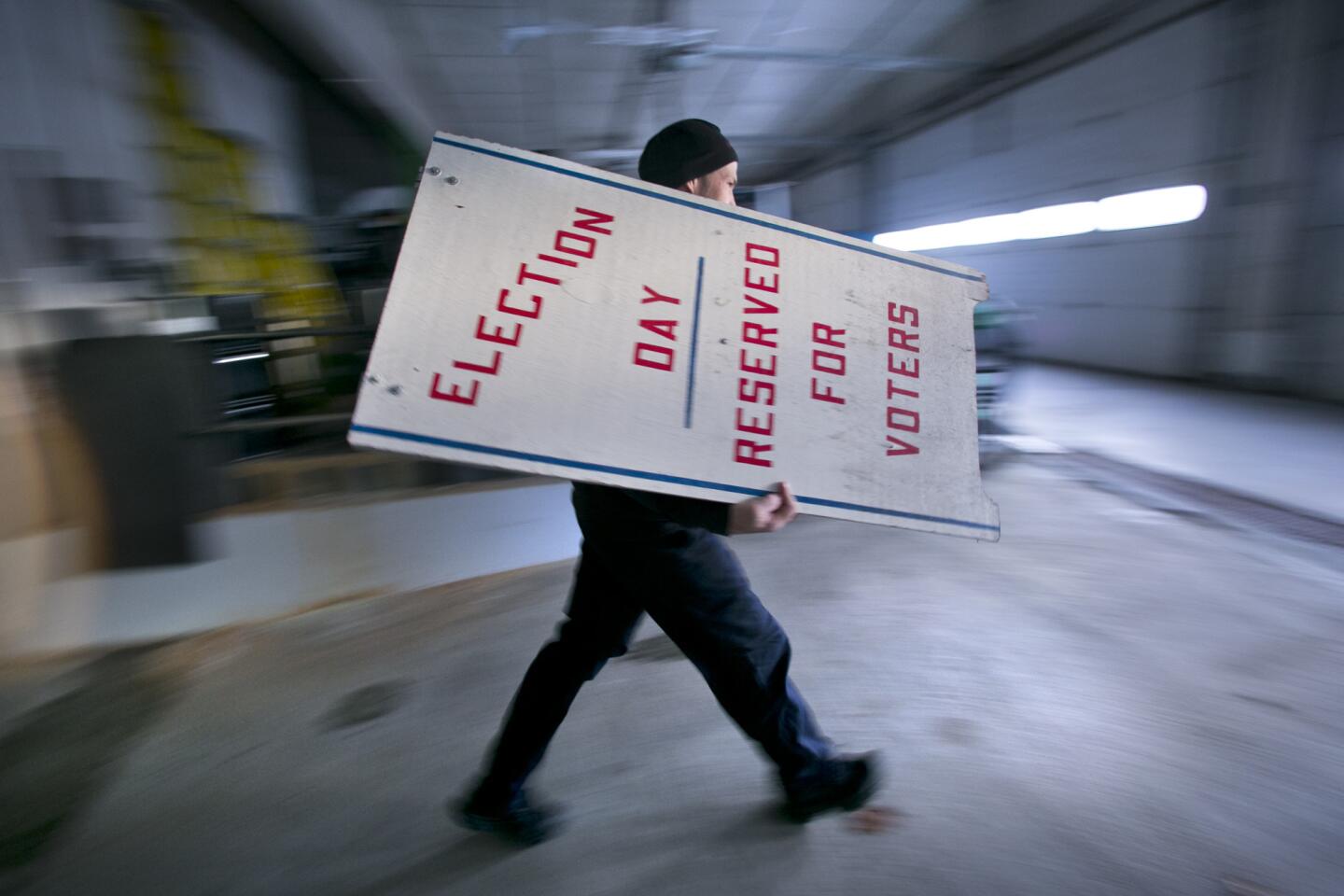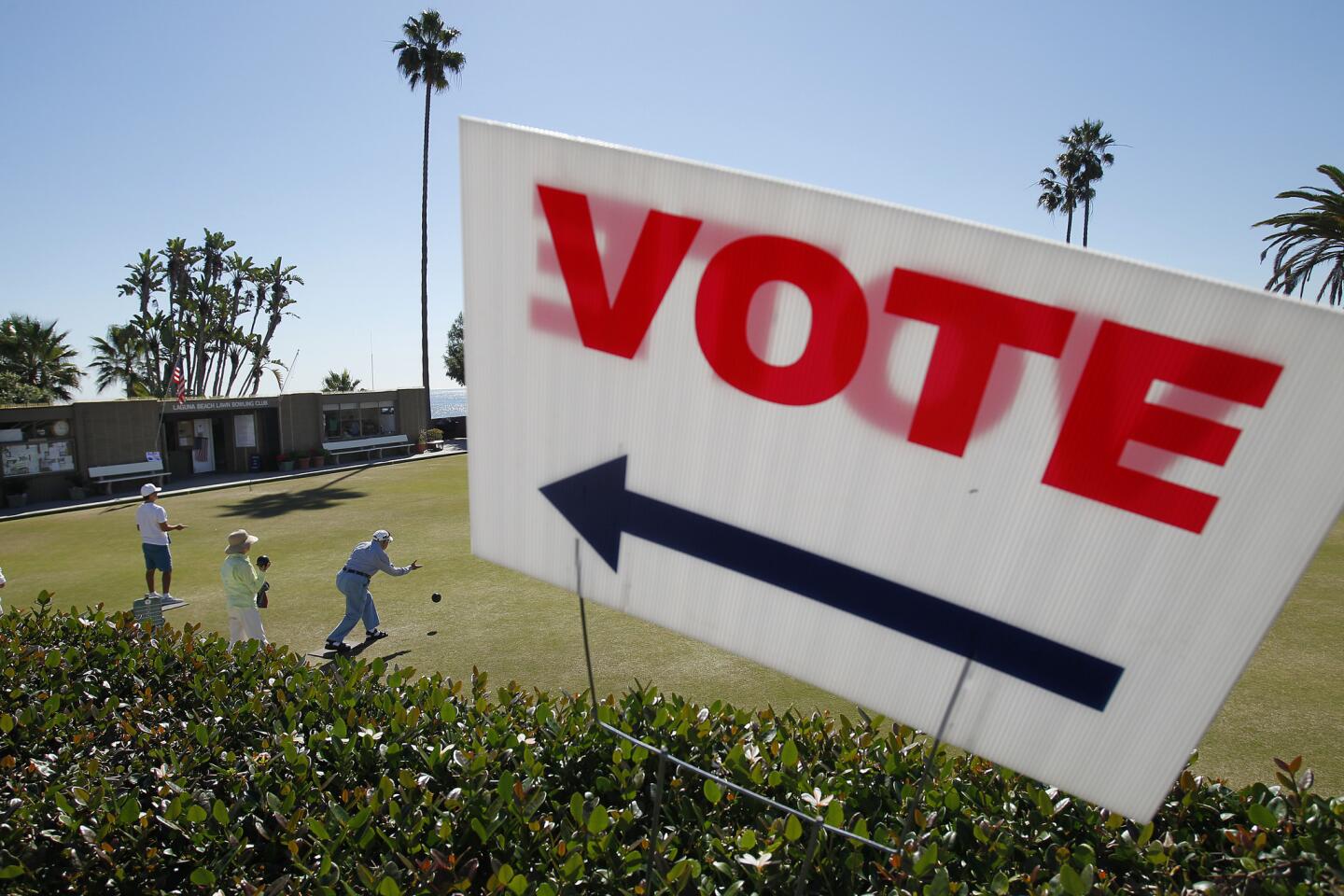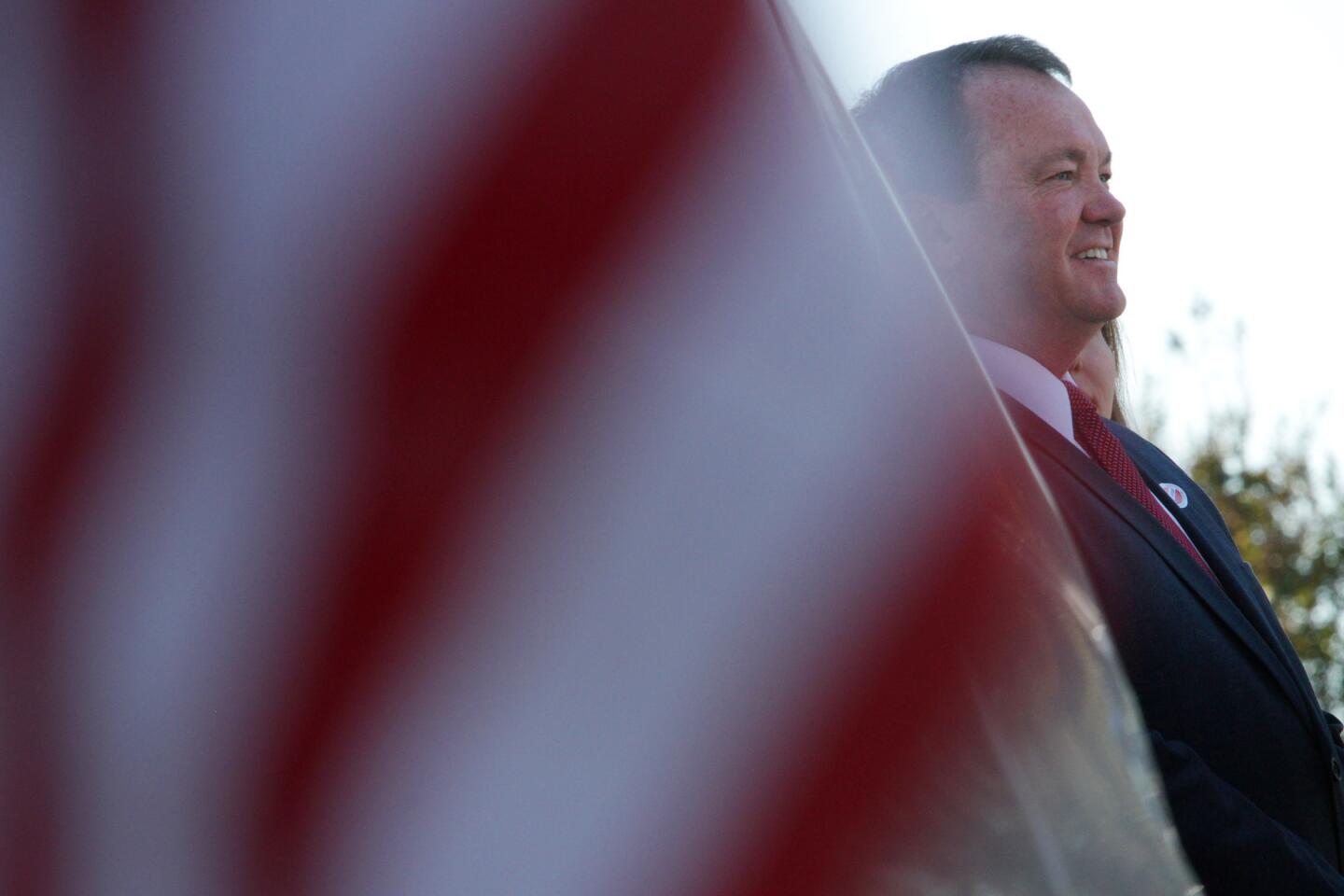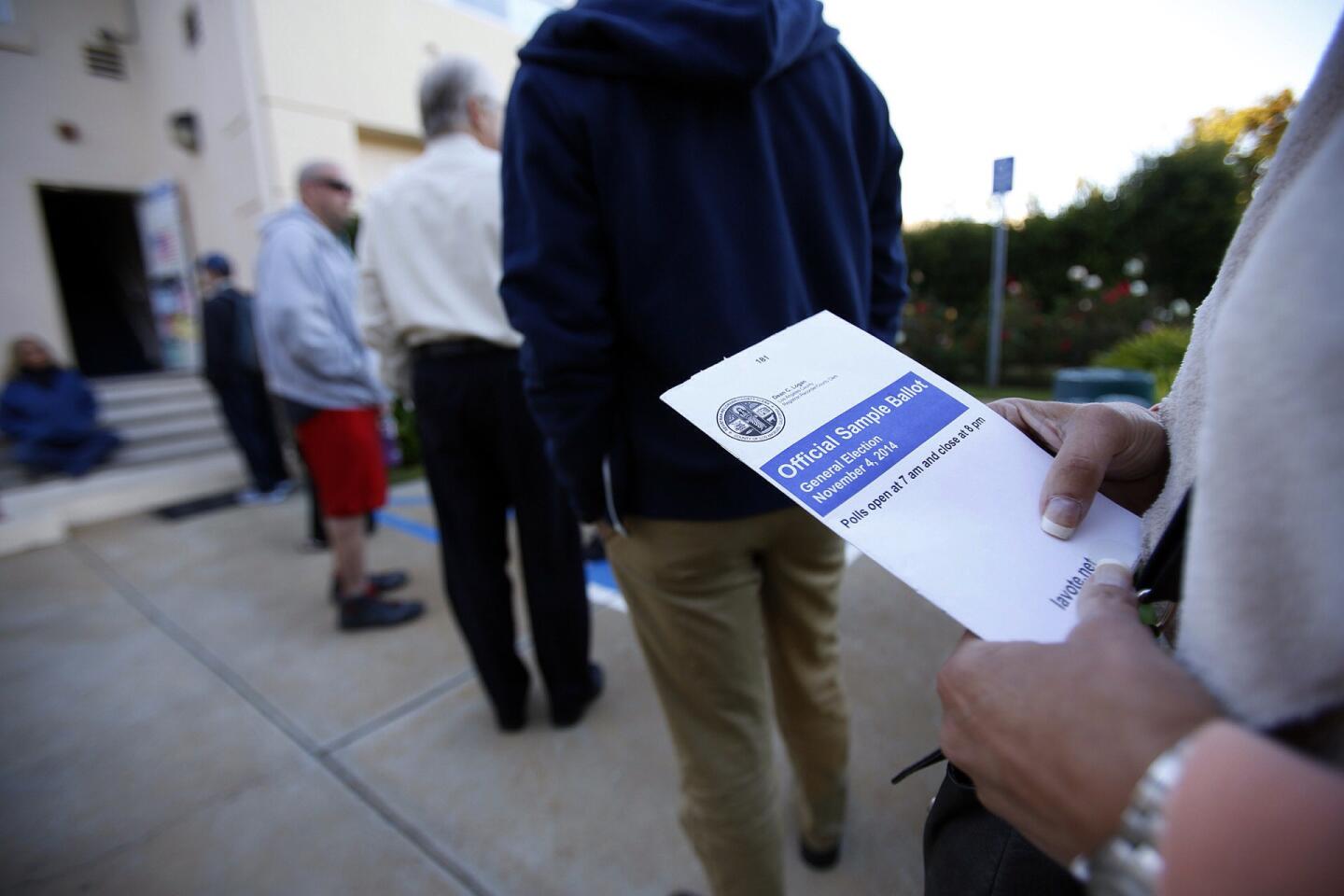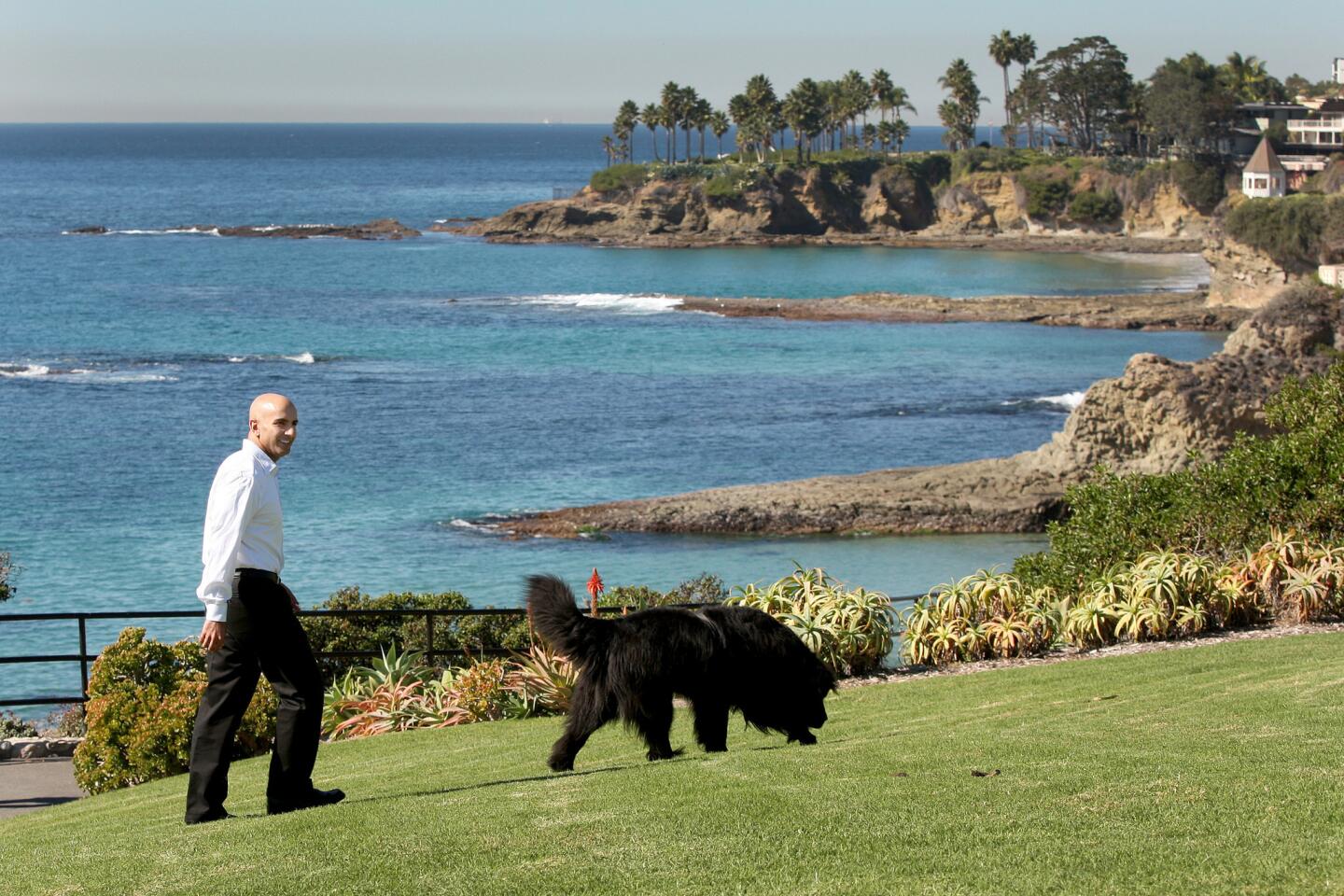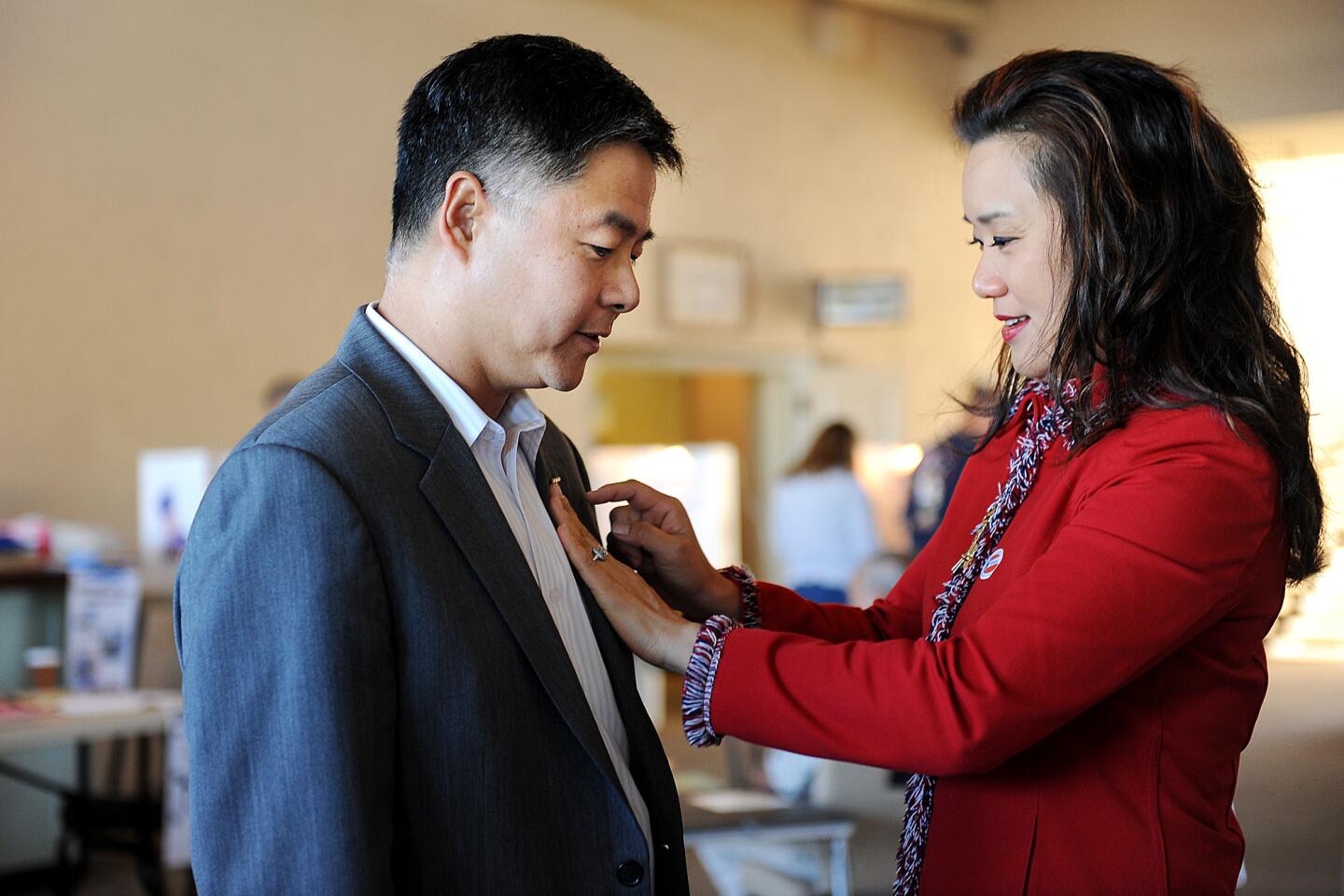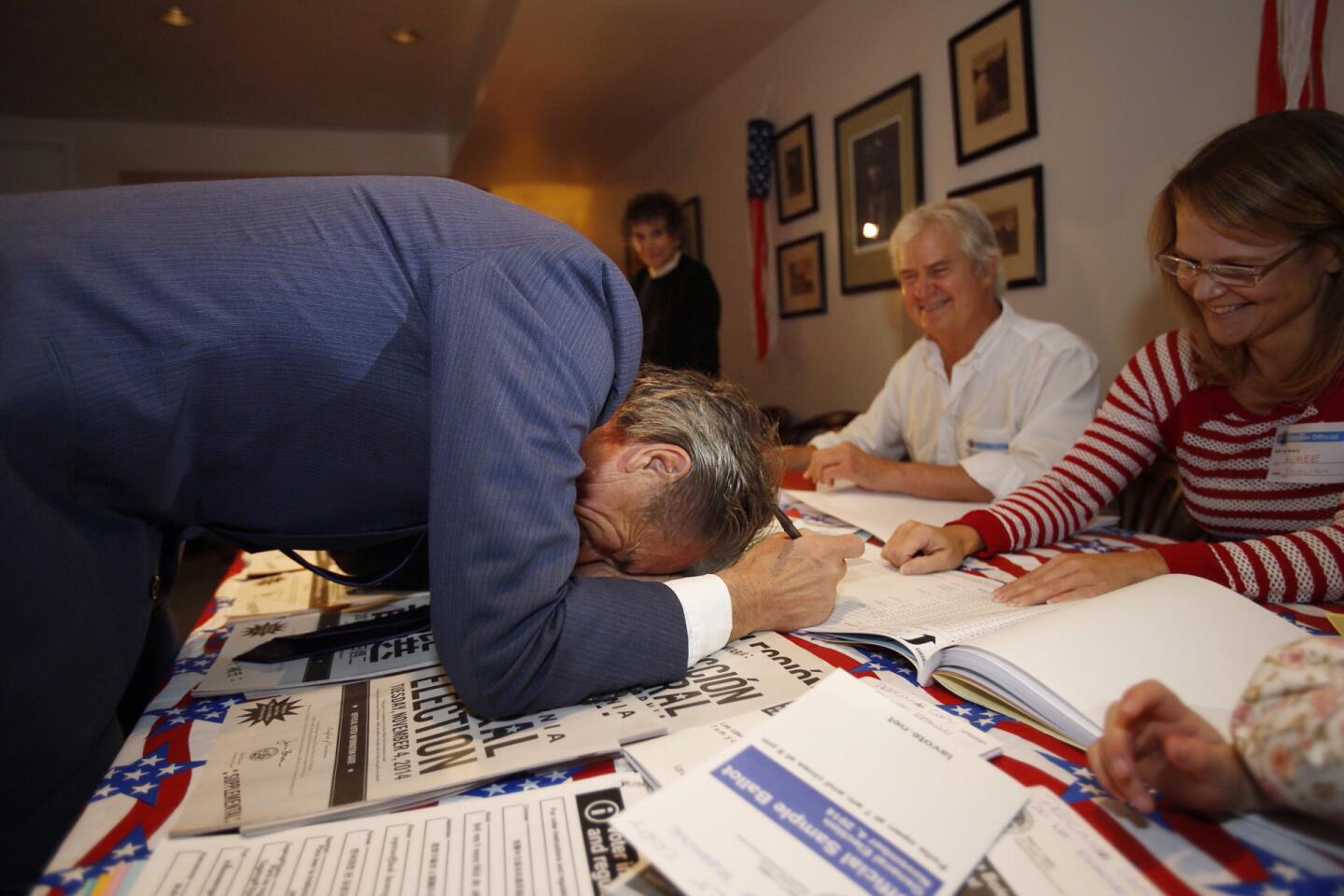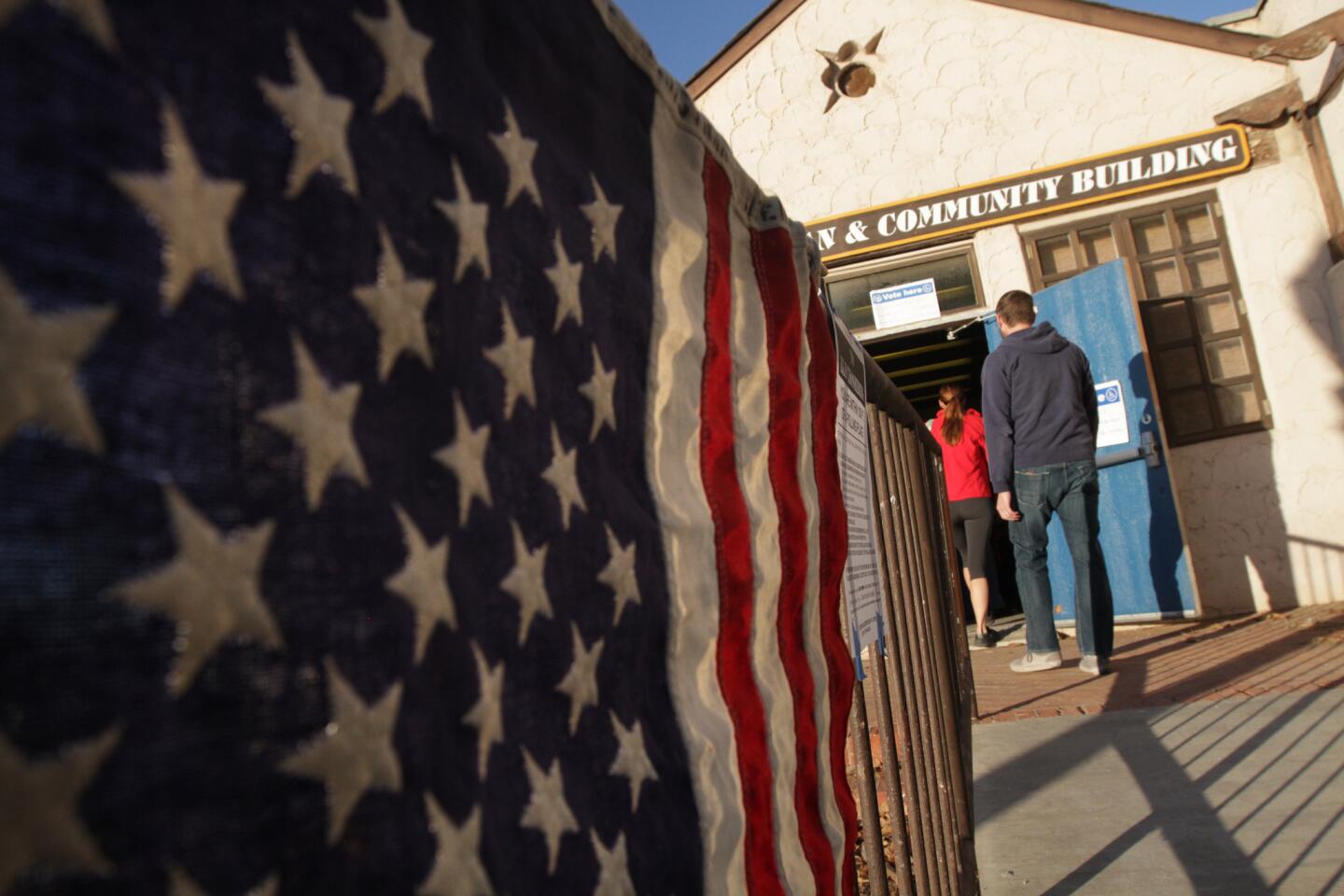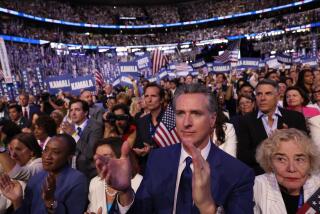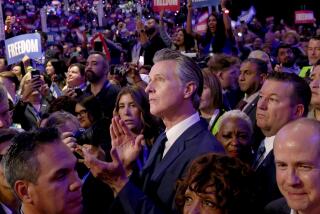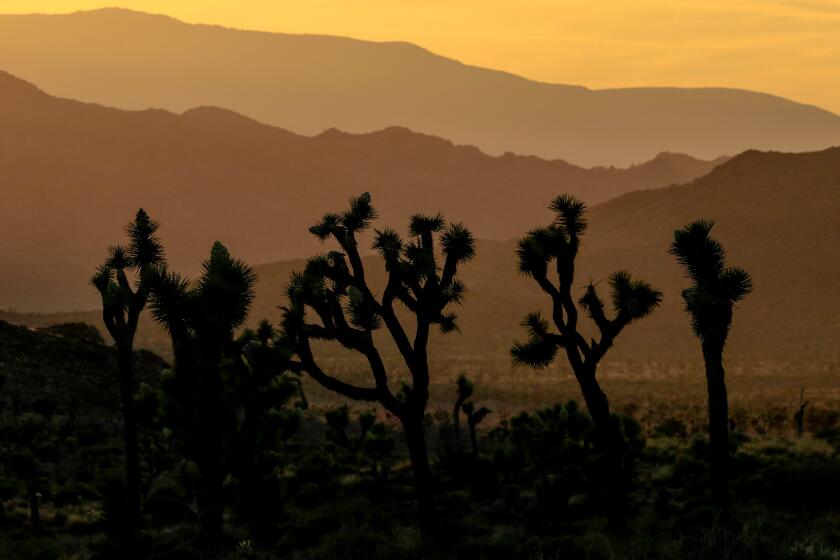Gov. Brown coasts to historic fourth term
California voters decisively elected Gov. Jerry Brown to a historic fourth term Tuesday, a rare bright spot for Democrats on a night when Republicans celebrated huge victories in the rest of the nation.
Brown handily defeated GOP challenger Neel Kashkari and voters also approved the two propositions that the incumbent championed — a $7.5-billion water bond measure and a state rainy-day fund. Brown pointed to those victories as he ruminated on his reelection outside the historic governor’s mansion in Sacramento shortly after the polls closed.
“The world looks pretty troubled out there. The country is facing a lot of uncertainty. But here in California, where they called us a failed state, we’re now showing the way,” Brown told reporters, standing alongside his wife, Anne Gust Brown.
Asked what it was like to win an unprecedented fourth term, the 76-year-old said, “I think it’s pretty neat, actually.”
“This fourth term, no one’s ever had it, no one’s ever going to have it again,” said Brown, the son of a former governor. “I take the responsibility and the opportunity very seriously, and every part of my mind, my body, my imagination, I’m going to throw into this next four years.”
Kashkari, greeting supporters in a Costa Mesa hotel ballroom, said he was disappointed but proud of the campaign he ran, focusing on issues such as poverty and rebuilding the state GOP with an inclusive message.
“We came up short today so I’m in no position to make grand statements or any bold demands,” Kashkari said before adding that he had one humble request of the governor: to “push the special interests aside, fight for the kids of California, to fight for the working families of California.”
The two races that offered California Republicans their best opportunity to elect a statewide candidate — secretary of state and controller — were close in early returns.
Lt. Gov. Gavin Newsom was elected to a second term over former GOP Chairman Ron Nehring.
Democratic Atty. Gen. Kamala Harris and Insurance Commissioner Dave Jones were leading in reelection bids, as was the Democratic candidate for Treasurer, John Chiang.
Voters appeared to favor Proposition 47, which reduces some low-level criminal penalties. But they rejected Proposition 45, which would have given the state insurance commissioner oversight over some health insurance rate increases. Proposition 46, which would have increased the cap on medical malpractice awards, was also defeated. Proposition 48, which would allow off-reservation tribal gaming, also failed.
Democrats’ ability to retain a supermajority in the state Assembly and retake one in the state Senate was up in the air.
Voters also cast ballots in congressional races that could affect the GOP’s power in the nation’s capital. Four slots on the state Board of Equalization were also being decided. In Los Angeles County, voters selected a new sheriff and a member of the powerful county Board of Supervisors.
The period leading up to the election in the state was among the sleepiest in recent memory. Voter turnout for the June primary was a record low — only one in four registered voters cast ballots. Many expected dismal participation again in Tuesday’s general election.
The most competitive race in the final days was for state superintendent of public instruction, typically a muted, low-budget affair that draws few voters’ attention.
The contest for the nonpartisan post featured two feuding Democrats, incumbent Tom Torlakson and challenger Marshall Tuck. The race became the most expensive among statewide candidates this year, drawing $30 million in spending in a proxy war between teachers’ unions and those who seek to dramatically overhaul how schools are run. Torlakson held the lead late Tuesday.
California Republicans, who are at a historic low in voter registration, have not elected a candidate to statewide office since 2006. The race to be the next secretary of state offered the GOP its best chance, with civic institute leader Pete Peterson narrowly trailing Democrat Alex Padilla, a state senator from Pacoima, in opinion polls in the election’s final days.
Republicans had also initially been optimistic about their prospects in the state controller race. But their candidate, Fresno Mayor Ashley Swearengin, faltered against her Democratic rival, state Board of Equalization member Betty Yee, as GOP donors failed to back Swearengin in a meaningful way.
The top-of-the-ticket contest was the most lackluster in recent memory, with no billionaire or global celebrity on the ballot. GOP gubernatorial nominee Neel Kashkari, a first-time candidate who was previously best known for running the $700-billion federal bailout of Wall Street, was largely viewed as a sacrificial lamb, even by members of his own party.
Brown was so confident of victory that he never once ran an advertisement asking voters to support him, instead focusing on the $7.5-billion water bond measure and the state rainy-day fund proposal on the ballot. A mainstay of California Democratic politics since the 1970s, Brown first hit the stump a mere eight days before the election.
The governor’s ability to focus on matters aside from his reelection stemmed from two realities.
Long-ago derided as “Governor Moonbeam,” Brown is now viewed by many voters as a steady-handed leader who righted the state’s precarious financial situation — while keeping fellow Democrats in Sacramento from potential overspending.
Meanwhile, Kashkari, the son of Indian immigrants and a social liberal, set out to broaden the Republican Party in California and took his message to communities that traditionally leaned Democratic. But he failed to raise enough money to remotely threaten Brown.
During the primary, Kashkari received attention and some cash from establishment Republicans in California and around the nation. But they were less driven by support for Kashkari than making sure his primary rival, tea party firebrand Assemblyman Tim Donnelly (R-Twin Peaks), was not at the top of the GOP ticket in the general election. Donnelly was known for bringing a loaded gun to an airport and for making controversial statements about illegal immigration and other issues.
Once Kashkari beat Donnelly in June, donors abandoned him.
All told, Kashkari put more than $3 million of his own money — more than 60% of his stated net worth — into his bid. But that is a tiny sliver of the sums needed to reach voters in a state as large as California.
So the candidate sought attention with unusual moves — critics called them stunts — such as living as a homeless person in Fresno for a week, handing out $25 gas cards to promote his opposition to high-speed rail and creating a controversial television ad featuring the image of a drowning child.
None of it resonated with or even reached most California voters, more than two-thirds of whom could not name the GOP gubernatorial nominee in a USC Dornsife/Los Angeles Times poll days before the election.
But on Tuesday, Kashkari suggested this election was not the last Californians would hear from him.
“This was always about blazing a trail for the future of California and the future of the Republican Party,” he told a small but exuberant crowd. “I want you to know this: I’m just getting warmed up.”
Twitter: @LATSeema
Times staff writers Kim Christensen in Costa Mesa and Chris Megerian in Sacramento contributed to this report.
More to Read
Sign up for Essential California
The most important California stories and recommendations in your inbox every morning.
You may occasionally receive promotional content from the Los Angeles Times.
